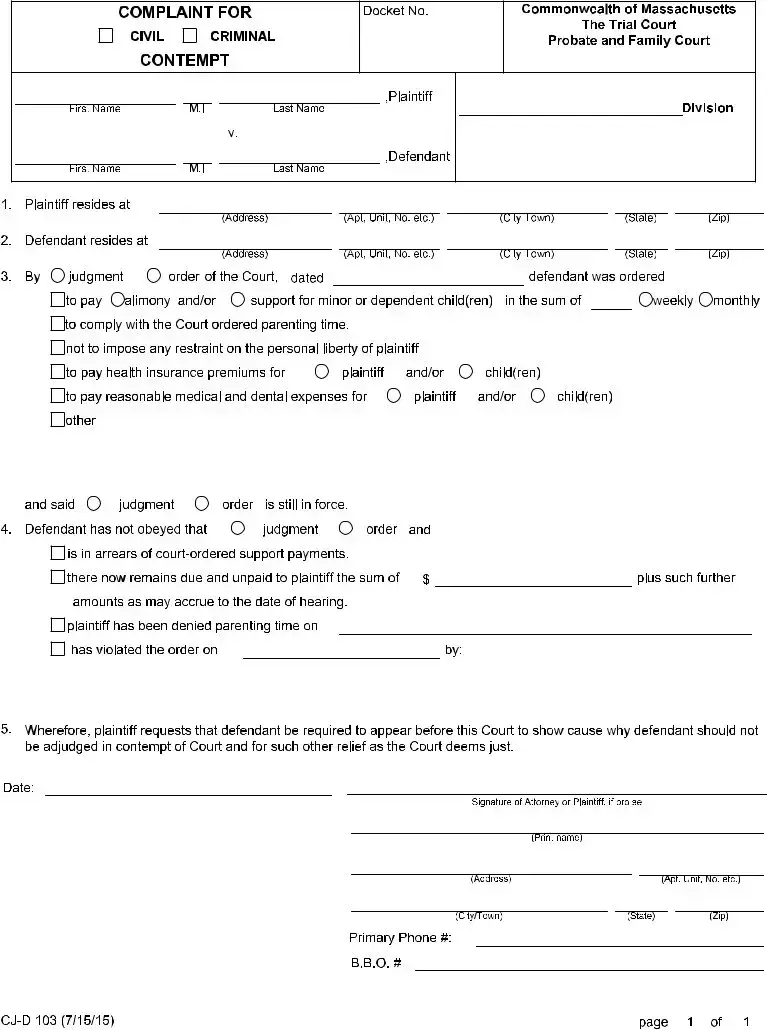Fill Your Massachusetts Complaint For Contempt Form
The Massachusetts Complaint For Contempt form is a legal document used when an individual believes that another party has failed to comply with a court order. Its purpose is to request the court to enforce compliance and possibly apply penalties to the non-compliant party. For those needing to navigate through this process, accurate completion of the form is crucial; click the button below to get started on filling out your form.
Make My Massachusetts Complaint For Contempt Online
Fill Your Massachusetts Complaint For Contempt Form
Make My Massachusetts Complaint For Contempt Online
Make My Massachusetts Complaint For Contempt Online
or
Get Massachusetts Complaint For Contempt File
One more step to finish this form
Fill in and edit Massachusetts Complaint For Contempt online in minutes. Skip printing and scanning.
